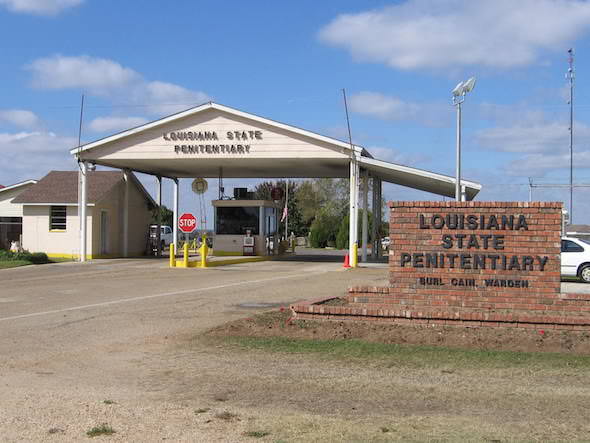Gary Tyler on the American Justice System: ‘Truth Is Going to Stand Out No Matter What’
The former death row inmate at Louisiana State Penitentiary spent 42 years in prison for a crime he says did not commit Now he is speaking out on behalf of America's prison population and calling for more rehabilitative programsThe former death row inmate at Louisiana State Penitentiary spent 42 years in prison for a crime he did not commit.
Louisiana State Penitentiary, also known as Angola. (msppmoore / CC 2.0)
Gary Tyler’s innocence was apparent to many who heard his story of being wrongly convicted of murder at age 16 by an all-white jury. But it took 41½ years for him to be released from one of the most infamous prisons in the United States—Louisiana State Penitentiary, also known as Angola. His prolonged incarceration allowed Tyler to give voice to many in the prison population, especially those on death row.
After his Oct. 13 “Live at Truthdig” interview, Tyler spoke with Truthdig Publisher Zuade Kaufman about how a sense of truth brought justice to his case. “When they read my case, it’s something that they don’t forget. It’s always a reminder. … When somebody refuses to die, there’s something wrong with that,” he said.
The feeling of innocence is pervasive in prisons. “People, no matter what, don’t want to admit their guilt,” said Tyler. “Everybody wants to be innocent. And that’s bad for the actual innocents.”
He explained:
The prosecutor—is it his job to prosecute [correctly]. In most cases, the prosecutors don’t work to get to the truth of things. So what they do [is], they manufacture the scenes. And the person that is accused of committing the crime? He knows how the crime was committed. So he feels as though if the prosecutor is not depicting how the crime was committed and the jury finds him guilty, he feels as though he’s innocent … that he was convicted wrongly.
These prisoners are never given the opportunity to reconcile why they went to prison, Tyler said, and that’s why he advocates for comprehensive rehabilitative programs. “They come out of prison worse because they feel as though they have no reason to change their life, to better themselves,” Tyler said. The prison system in its current form is “just punishment.”
But, he said, “There’s one thing about truth—[the] truth’s going to stand out no matter what.” That is how other prisoners knew that the teenage Gary Tyler didn’t belong on death row. “I didn’t come across as being a criminal, as being a murderer,” he said. “It was like they saw the innocence within me.”
Tyler went on to briefly describe the events leading up to his 1974 arrest, the overlooked evidence that proved his innocence and why black leaders “turned their heads” from his case.
Watch the two videos, taken after our Facebook Live session, below.
—Posted by KiMi Robinson
Independent journalism is under threat and overshadowed by heavily funded mainstream media.
You can help level the playing field. Become a member.
Your tax-deductible contribution keeps us digging beneath the headlines to give you thought-provoking, investigative reporting and analysis that unearths what's really happening- without compromise.
Give today to support our courageous, independent journalists.









You need to be a supporter to comment.
There are currently no responses to this article.
Be the first to respond.